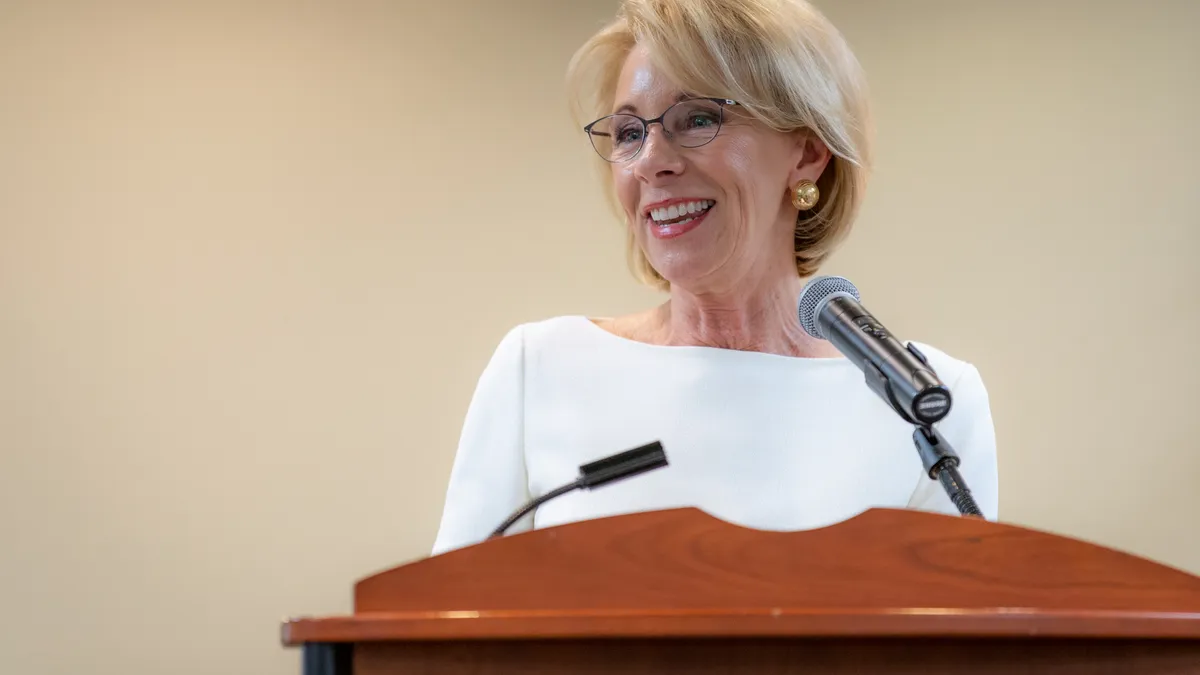Dive Brief:
-
U.S. Secretary of Education Betsy DeVos on Friday issued proposed nonregulatory guidance to districts regarding compliance with the Every Student Succeeds Act’s (ESSA) “supplement-not-supplant” provision, which says federal funding can supplement — and not replace — state and local spending, Education Week reports. In a news release, the department said the old requirement proved “burdensome and restrictive,” leading to changes that allow administrators more flexibility and to make good spending choices while also being in compliance.
-
Under the proposal, districts don’t have to make sure per-pupil spending on Title I schools — which have a larger high-poverty student population — equals that of others. Districts also don’t have to post their methods for complying with “supplement-not-supplant,” but they can't simply use per-pupil spending data to prove their compliance.
-
The guidance directly contrasts the Obama administration’s proposed regulations — which were never finalized — that said districts would be required to at least equalize per-pupil spending between Title 1 and non-Title I schools. But it does resemble the Obama administration’s 2015 guidance on districts’ Title I spending, Education Week reports.
Dive Insight:
The notion of the “supplement-not-supplant” provision is part of an attempt by the federal government to solve inequities in previous funding methods. While Title I dollars are supposed to provide extra resources to students and schools that need them most, some states and school districts were shifting pots of money around and using Title I funds to free up funds from other sources. Historically, this began to create funding inequities between districts, according to a statement from former Education Secretary John B. King Jr.
However, school funding is a complex issue, and this is part of the reason the “supplement-not-supplant” provision became so controversial. While the notion was supported by civil rights advocates, it was opposed by state and district education leaders, many Republican leaders and teachers unions because of the way its implementation could affect the distribution of teachers and other resources within a district.
As district leaders have strived — and sometimes struggled — to comply with all aspects of the provision, this new proposed guidance relaxes some of the rules. The Council of Chief State School Officers is cautiously optimistic, and its chief of staff, Melissa McGrath, told The 74 that “we appreciate that the U.S. Department of Education is committed to supporting state and local leadership in implementing federal programs.”
On the other hand, critics say it still won’t solve the problem and could make the issue worse. The 74 notes fears that this flexibility will give districts too much freedom and strip the protections of low-income students. In the article, Lynn Jennings, director of national and state partnerships at nonprofit The Education Trust, told The 74, “We’re very concerned at this point that one of the most critical civil rights components of ESSA has been undermined.”













